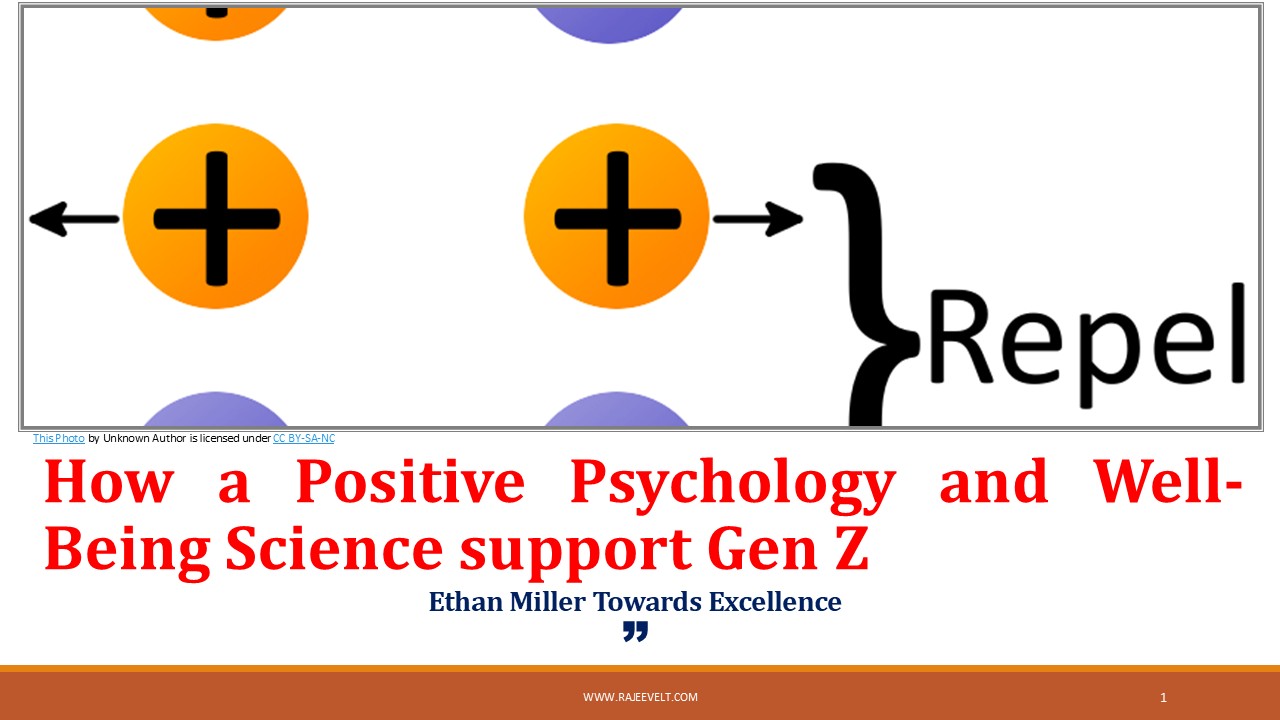
Ananya’s Journey Towards Excellence
How a Positive Psychology and Well-Being Science support Gen Z
Ananya Sharma sat at her study desk in Delhi one winter evening, surrounded by towering stacks of textbooks. The room smelled faintly of incense, and outside, the noise of honking rickshaws mixed with the laughter of children playing in the narrow lanes. On the surface, her life looked like that of any bright, middle-class Indian college student. She was nineteen, sharp, diligent, and determined to secure her future. Yet inside, she felt as if she were running a race without a finish line.
Her parents had always emphasized education. “Beta, good marks are your passport to success,” her father would remind her, while her mother proudly compared her grades with those of neighbour’s children. Ananya nodded politely, but her heart carried a heaviness she could not name.
The real weight came not from expectations alone but from comparisons. Each night, scrolling endlessly on Instagram, she saw classmates flaunting foreign internships, stylish outfits, and vacation trips abroad. Look at them, she thought. They are living. And here I am, trapped with books. Anxiety crept into her chest. She was sleeping barely four hours a night by her second year in college, oscillating between bursts of study and waves of self-doubt.
One morning, after a sleepless night before exams, she whispered to her friend Meera, “I don’t know if I can keep this up. Everyone else seems so much better.”
Meera placed a hand on her shoulder. “You’re not alone, Ananya. The college has started something new—a well-being initiative. Why don’t you check it out?”
Curious yet sceptical, Ananya walked into a small classroom later that week. Posters of words like resilience, gratitude, and strengths decorated the walls. A professor introduced them to Positive Psychology and invited students to complete the VIA Character Strengths Inventory.
When Ananya saw her results—curiosity, love of learning, and kindness ranked highest—her eyes welled with tears. For years she had seen herself only as a grade collector. Now, she began to view herself differently: as someone who naturally sought knowledge, asked questions, and cared for others.
“Your strengths are not accidents,” the facilitator said warmly. “They are your tools for success. Use them.”
That evening, Ananya began a gratitude journal. She wrote three things: Maa’s morning tea, Meera’s encouragement, and the warmth of the winter sun on my face. At first, the exercise felt trivial, but gradually she noticed a shift. Small joys started to shine through the haze of anxiety.
She also joined a mindfulness group where students sat cross-legged in silence, practicing slow breathing. “Breathe in… breathe out,” the leader intoned. Ananya felt her heartbeat slowing for the first time in months.
Soon, she found ways to use her strengths meaningfully. She began tutoring children in her neighbourhood, teaching English and math. Their eager eyes reminded her that success was not only about marks; it was also about impact. She felt lighter, her anxiety no longer a silent monster but a shadow she could face.
When exams arrived again, Ananya still studied hard, but her perspective had changed. Failure no longer felt like a life sentence but an opportunity to grow. Her self-worth was no longer tied to others’ Instagram feeds but to the meaningful connections she built in real life.
Looking back months later, she wrote in her journal:
“I still feel anxious sometimes. But now I know I am more than my marks, more than comparisons. I have strengths, I have purpose, and I can succeed.”
Ananya’s journey shows how strength-based interventions, gratitude practices, and mindfulness—pillars of Positive Psychology—can reshape the experience of Gen Z youth in India.
What we find
Ananya in Delhi and Ethan in California lived different lives, shaped by culture and context. Yet both faced the same modern storm: anxiety, comparison, loneliness, and pressure to perform. Through Positive Psychology and Well-Being Science, both discovered that flourishing is not about eliminating challenges but about using our strengths, cultivating gratitude, building authentic relationships, and living with meaning.
Their stories remind us of a timeless truth: across cultures and continents, what Gen Z longs for is not perfection, but wholeness. Positive Psychology does not offer shortcuts; it offers pathways—gentle yet powerful—to help them thrive.


